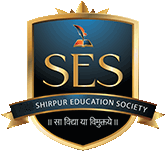Vision :
To produce globally competent Electronics and Telecommunication Engineers with a commitment to serve society.
Mission :
To prepare and transform students from socially and economically diverse backgrounds into highly skilled engineers in the field of Electronics and Telecommunication Engineering for a successful professional career.
Program Outcomes:
- PO1 Engineering Knowledge: Apply the knowledge of mathematics, science, engineering fundamentals, and an engineering specialization to the solution of complex engineering problems.
- PO2 Problem Analysis: Identify, formulate, review research literature, and analyse complex engineering problems reaching substantiated conclusions using first principles of mathematics, natural sciences and engineering sciences.
- PO3 Design/Development of Solutions: Design solutions for complex engineering problems and design system components or processes that meet the specified needs with appropriate consideration for the public health and safety, and the cultural, societal, and environmental considerations.
- PO4 Conduct Investigations of Complex Problems: Use research-based knowledge and research methods including design of experiments, analysis and interpretation of data, and synthesis of the information to provide valid conclusions for complex problems:
- PO5 Modern Tool Usage: Create, select, and apply appropriate techniques, resources, and modern engineering and IT tools including prediction and modelling to complex engineering activities with an understanding of the limitations.
- PO6 The Engineer and Society: Apply reasoning informed by the contextual knowledge to assess societal, health, safety, legal and cultural issues and the consequent responsibilities relevant to the professional engineering practice.
- PO7 Environment and Sustainability: Understand the impact of the professional engineering solutions in societal and environmental contexts, and demonstrate the knowledge of, and need for sustainable development.
- PO8 Ethics: Apply ethical principles and commit to professional ethics and responsibilities and norms of the engineering practice.
- PO9 Individual and Team Work: Function effectively as an individual, and as a member or leader in diverse teams, and in multidisciplinary settings.
- PO10 Communication: Communicate effectively on complex engineering activities with the engineering community and with society at large, such as, being able to comprehend and write effective reports and design documentation, make effective presentations, and give and receive clear instructions.
- PO11 Project Management and Finance: Demonstrate knowledge and understanding of the engineering and management principles and apply these to one’s own work, as a member and leader in a team, to manage projects and in multidisciplinary environments.
- PO12 Life-long Learning: Recognize the need for, and have the preparation and ability to engage in independent and lifelong learning in the broadest context of technological change.
Program Educational Objectives (PEOs)
- PEO1: Able to recognize, synthesize and apply the learnings of graduate program to sensitize and adopt advances in the field of technology to solve the engineering problems.
- PEO2: Able to explore new career opportunities in the recent hardware and software technologies through capacity building.
- PEO3: Communicate effectively, demonstrate leadership qualities and exhibit professional conduct in their career.
Program Specific Outcomes (PSOs)
- PSO1 (Domain: Core Competency):Apply basic knowledge related to Electronic Devices and Circuits, Electromagnetics, Digital Signal Processing, Communication Engineering and Microprocessor/ Microcontroller based Systems to solve engineering problems.
- PSO2 (Domain: Software Competency): Demonstrate proficiency in the use of software required in real-life applications.
- PSO3 (IP Competency): Able to develop product, prototype, IPR, publish findings in journal, conference, techfest or in technical magazine.
